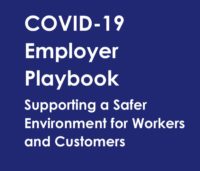Even for the soaring cannabis industry, recruitment and retention of a qualified workforce remains a significant challenge in 2022. Although a tight labor market was not a new situation for many industries, the COVID-19 pandemic made it much worse and widespread, and the pain has yet to subside. In 2021, 47 million workers voluntarily left their jobs and nearly half of small businesses are experiencing worker shortages.
About 43% of workers who quit their jobs cited inadequate benefits as a factor in their decision. Among workers who cited benefits as a top concern, more than three-quarters said retirement plans are a “must-have” benefit. Most small businesses in the U.S. (74%) of 50 employees or fewer, however, do not check that box on a potential hire’s requirements list.
Offering a 401(k) plan, therefore, can help any company attract and retain workers. Even companies in emerging fields like cannabis can add 401(k) retirement savings plans to the roster of benefits for its employees.
 In addition, there are tax benefits for the company should it offer a 401(k) plan and also match employee contributions. Employer contributions are deductible on the employer’s federal income tax return, so long as those contributions stay below the limitations described in section 404 of the Internal Revenue Service’s Internal Revenue Code.
In addition, there are tax benefits for the company should it offer a 401(k) plan and also match employee contributions. Employer contributions are deductible on the employer’s federal income tax return, so long as those contributions stay below the limitations described in section 404 of the Internal Revenue Service’s Internal Revenue Code.
Given the complexity of the cannabis industry and its hazy legal status in the U.S., however, it can be more challenging for cannabis companies to find benefits providers willing to create a program. Finding the right partners to navigate the process will help cannabis companies provide this significant employee benefit package.
Cannabis organizations have run into similar roadblocks finding banks and payroll providers willing to partner with them, and some large financial firms that offer retirement plans often decline to work with cannabis companies as well. But a growing number of boutique firms offer 401(k) programs and other benefits for this industry — it just requires the right partners to find the right plan.
Four tips for creating a 401(k) for cannabis workers
These four tips can help cannabis companies offer a 401(k):
- Plan Structure and Objectives: Outline the goals of the 401(k) plan and how it will be set up, including how employees will be rewarded for participation. Consider developing a formal investment policy statement that includes monitoring the plan.
- Matching Contributions and Auto-enrollment: Offering to match employee contributions tends to increase participation in retirement plans and increase employee satisfaction. There are a wide variety of paths the company could follow, but a good example would have the company matching 50% of salary up to 6%. Regarding automatic enrollment of employees into the plan, such a policy has shown to increase both participation and engagement.
- 401(k) 101: The company may need to educate its employees on the basics of a 401(k) plan if one was not offered previously. Employees may be unfamiliar with how these plans work and how to optimize their investment choices. Cannabis companies need to offer clear information on the benefits of the program, including information on managing their portfolio. This approach will make workers feel more comfortable with their investments and encourage engagement.
- Partner with 401(k) Experts: Emerging industries like cannabis can be complex. Cannabis companies that want to implement a 401(k) should partner with consultants who understand the intricacies of the sector and know what retirement benefits companies cater to the industry.








